Logical Reasoning Normal Reading Worksheets for 7-Year-Olds
5 filtered results
-
From - To
Enhance your 7-year-old's critical thinking with our Logical Reasoning Normal Reading Worksheets. Designed for young learners, these engaging worksheets are a perfect blend of fun and education, offering various activities that challenge and develop logical reasoning skills. From sequence puzzles to problem-solving exercises, every worksheet encourages kids to think analytically and make connections, boosting their reading comprehension and cognitive abilities. Suitable for in-classroom or at-home learning, these carefully crafted worksheets ensure that your child advances in logical reasoning while enjoying the learning process. Visit Kids Academy for free printable resources tailored to child development and academic success.
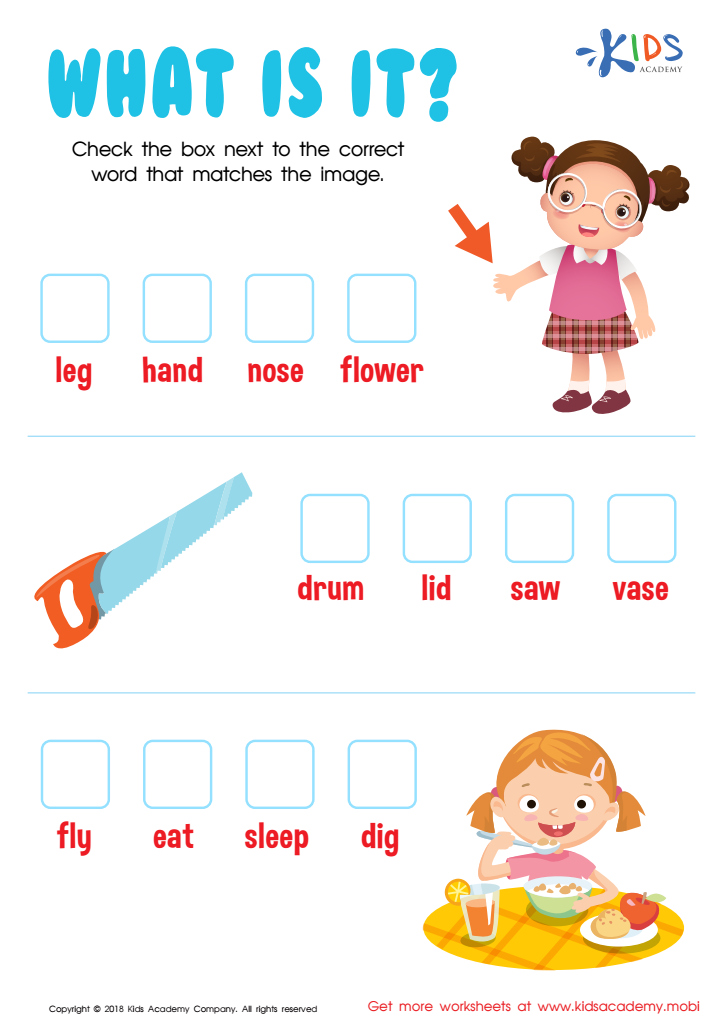

What Is It? Worksheet
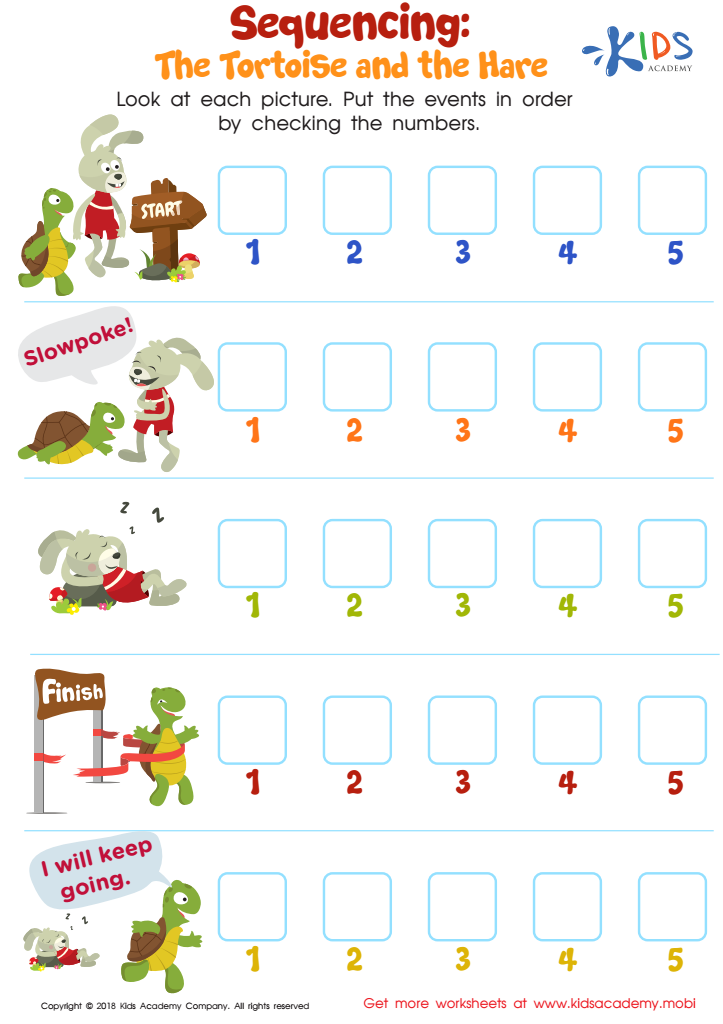

Sequencing: The Tortoise and the Hare Worksheet
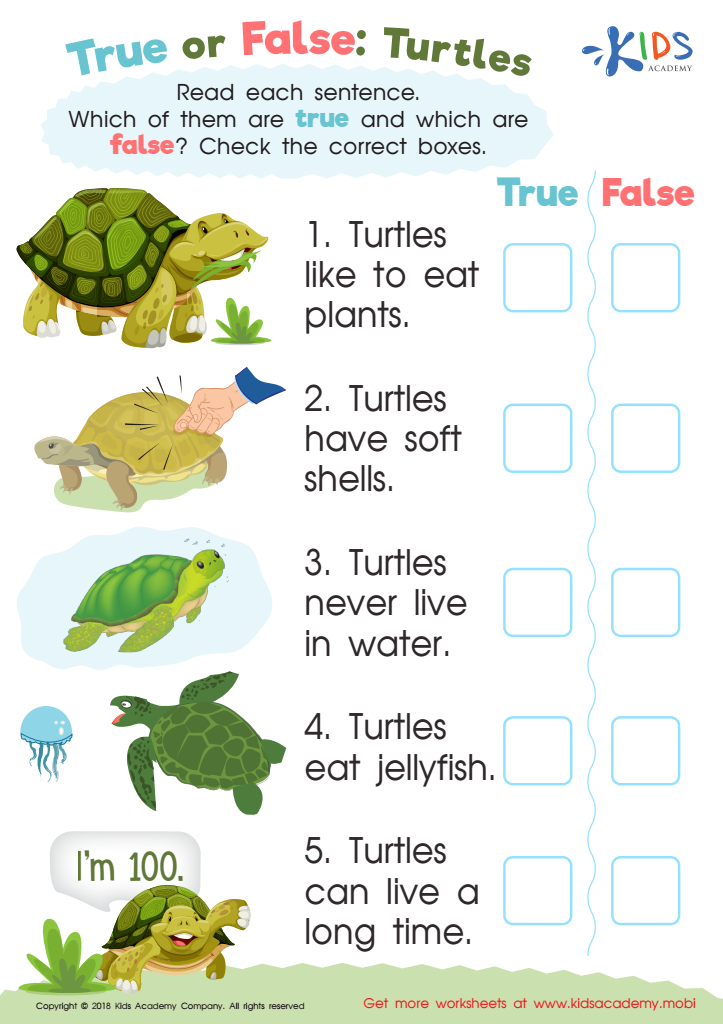

True or False: Turtles Worksheet
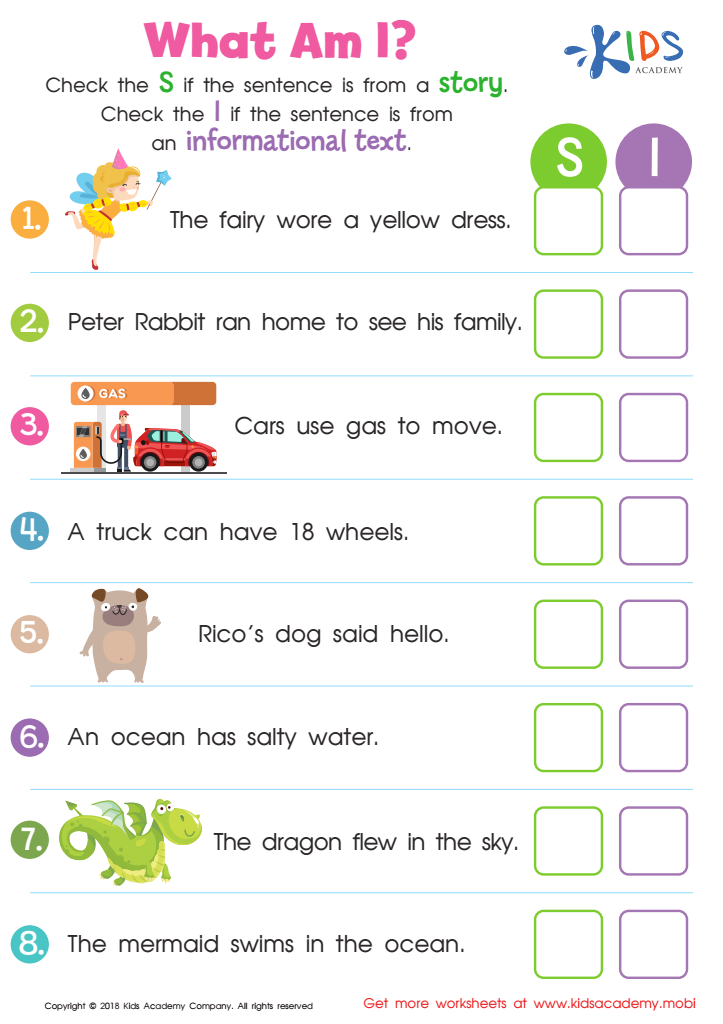

What Am I? Worksheet
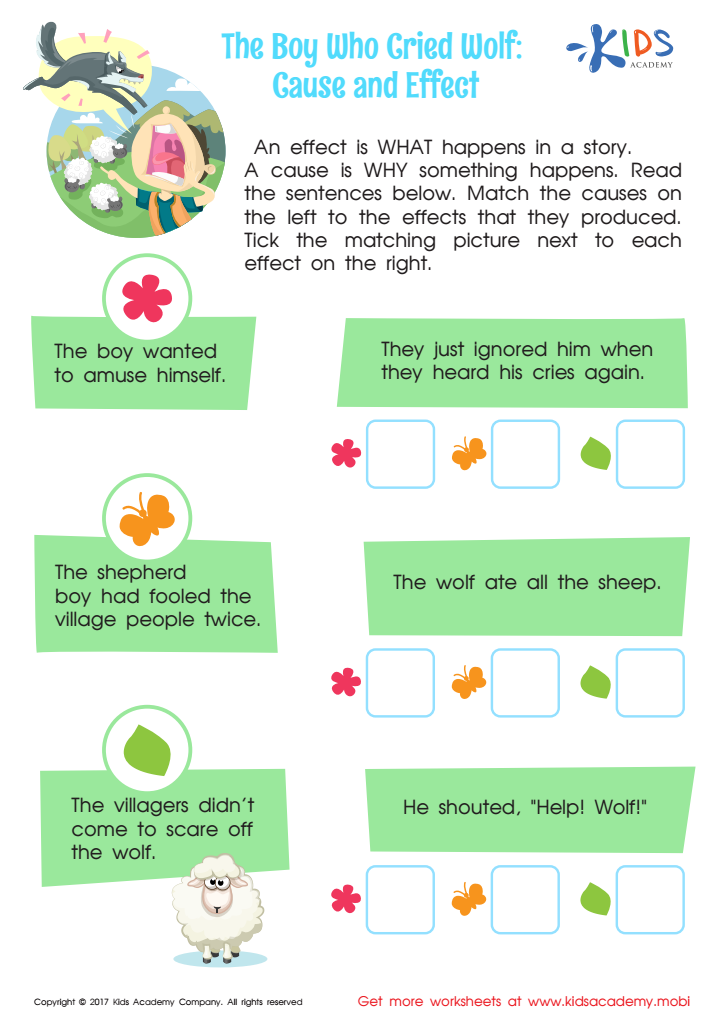

The Boy Who Cried Wolf: Cause and Effect Worksheet
Parents and teachers should prioritize logical reasoning and normal reading abilities for 7-year-olds because these foundational skills are pivotal for a child's intellectual development and future success. At this age, children transition from "learning to read" to "reading to learn," making it essential to ensure they possess strong decoding and comprehension skills. Logical reasoning, on the other hand, fosters critical thinking and problem-solving abilities. It helps children analyze situations, make informed decisions, and understand the cause-and-effect relationships that underpin much of life's interactions.
Strong reading skills boost academic performance across subjects. Proficient readers can comprehend complex instructions, grasp mathematical word problems, and gather information from various texts. Logical reasoning helps children understand mathematical concepts, identify patterns, and develop strategies for solving problems independently.
Moreover, both reading proficiency and logical reasoning cultivate self-confidence and autonomy in children. When they comprehend texts effortlessly and reason through challenges logically, they are more likely to participate in class, engage in discussions, and take initiative in their learning.
Investing in these skills at an early age sets children on a path for lifelong learning and success, as these abilities continue to be essential in more advanced education and daily life. Thus, it is crucial for parents and teachers to nurture these skills in 7-year-olds to build a strong foundation for their future.
 Assign to My Students
Assign to My Students



.jpg)












